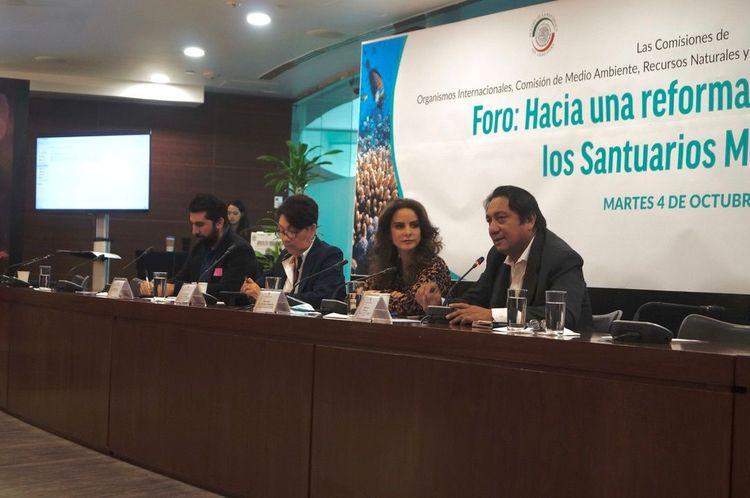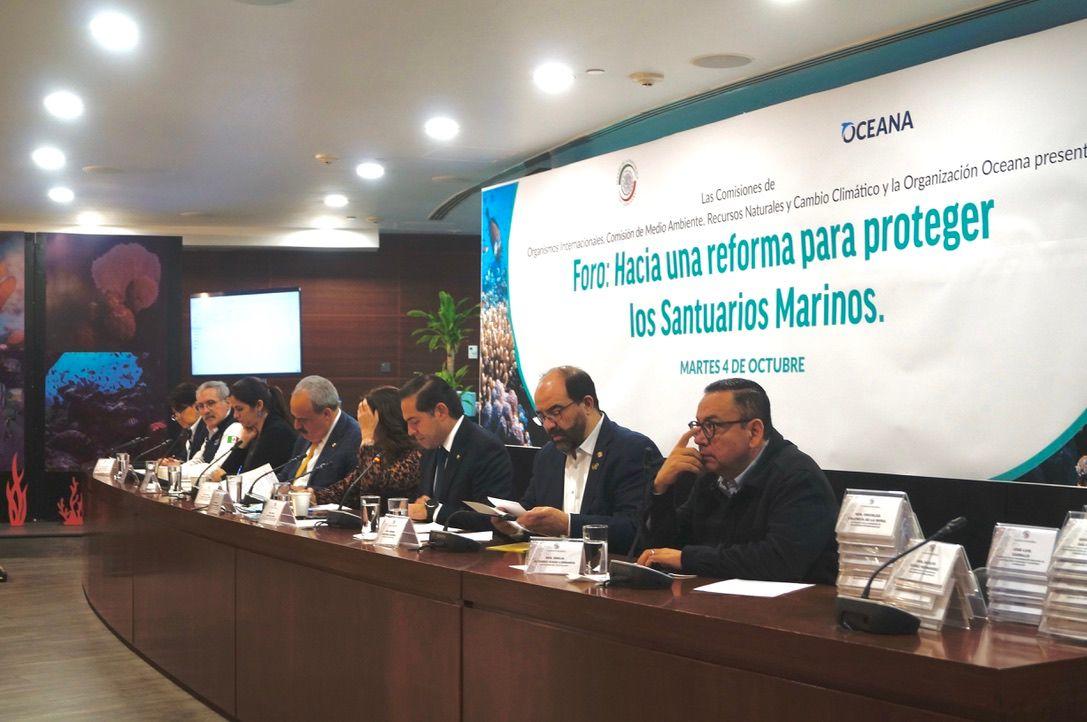With the objective of regulating the entry of vessels to Marine Protected Areas, also called marine sanctuaries, Senators Nancy de la Sierra, president of the Commission of International Organizations, and Raúl Bolaños-Cacho Cue, president of the Committee on Environment, Natural Resources and Climate Change, presented a bill for satellite monitoring.
The proposal seeks to reform Article 51 of the General Law on Ecological Balance and Environmental Protection, which refers to authorizations, concessions and permits for the use of natural resources in Protected Natural Areas (ANP) throughout the country.
“We seek to stop the illegal fishing that exists within our ANP. It is of greater importance that vessels are monitored and guarded. We must avoid continuing activities that harm our seas,” said Senator Bolaños-Cacho at the forum “Towards a reform to protect marine sanctuaries.”
This forum held in the Senate of the Republic was organized by Oceana, the organization that is supporting the initiative.
According to figures presented during the presentation, Mexico has 185 ANP, of which 37 are marine and 68 have coastal territory, but problems such as illegal fishing and overexploitation continue to jeopardize their conservation.
In view of this, Oceana has documented 236 incursions of possible illegal fishing in Protected Natural Areas from 2012 to 2021.
“One of the things we discovered is that there is no action as a State policy, what we have is an institution that sometimes works, there is no budget, there is no coordination, there is no legal framework that allows us to protect Marine Protected Areas,” said Renata Terrazas, vice-president of Oceana.

Second part of the forum “Towards a reform to protect marine sanctuaries”. Photo: Patricia Ramírez/CN Journalism.
During the second part of the forum, the participation of Miguel Rivas, director of the Habitats Campaign in Mexico, was also incorporated to learn more about fishing in ANP in relation to the initiative, as well as José Luis Carrillo, president of the Mexican Confederation of Fisheries and Aquaculture Cooperatives.
Rivas highlighted that with the addition of satellite monitoring, it would be possible to detect boats without permits and identify illegal fishing in core areas of the ANP.
“Satellite monitoring isn't the only answer, but it's a tool that helps fill in information gaps, to quantify fishing, if sites are being overexploited or going beyond their carrying capacity, especially in ANPs far from the coast where it's not that simple or cheap,” explained the director of the Habitats Campaign in Mexico.
For his part, José Luis Carrillo called for the involvement of fishing cooperatives in the conservation of Marine Protected Areas not to be ignored.
Regarding one of the main needs recognized in the forum, such as the budget allocated to ANP, Senator Nancy de la Sierra replied that she hopes that “good and better investment will be made” to solve problems.
According to an analysis by Journalism CN on the Federal Expenditure Budget Project (PPEF), the lowest resource allocation for the National Commission for Protected Natural Areas (Conanp) since 2005 is contemplated for 2023.
“Our urge is that the federal government, through the Ministry of Finance, reflect on where to invest the resource because it's not an expense, it's an investment. And when we change the focus between spending and investment, then our country will have better options,” added the senator.



Comentarios (0)